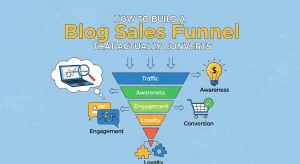The Ideal Blog Post Length for SEO in 2025

Bloggers always seem to have one question weighing on their minds: how long should my blog post be in order for Google’s rankings to really take off? It’s an issue worth addressing on two counts. Firstly, these days when SEO (Search Engine Optimization) plays such an important role in attracting traffic to your site. Some say that a shorter blog post is sweeter, while others argue for more detailed and longer posts.
Does Blog Post Length Even Matter?
The short answer is yes, blog post length does matter for SEO. Search engines, particularly Google, prioritize quality content that both answers user queries and demonstrates expertise. While length alone is not the sole ranking factor, longer posts tend to:
- Cover topics in-depth, signaling quality and authority.
- Include a range of keywords naturally, improving discoverability.
- Encourage longer dwell times (the time users spend on your site), which Google uses as an indicator of relevance.
However, longer isn’t always better. It’s crucial to match your content length to your topic, audience, and objectives. A 3,000-word post on “how to boil an egg” would deter readers, whereas a similar length post on “comprehensive SEO tips for small businesses” might make sense.
Optimal Word Counts Based on Scenarios
1. For Quick Tips or Answering Direct Questions
- Recommended Length: 300–600 Words
- Best For: FAQs, product updates, and specific how-to’s.
When your audience is looking for quick answers, brevity is key. For example, if someone searches, “How to remove coffee stains from a shirt,” they’re not expecting an essay. They want precise, actionable tips.
Shorter blogs also work well for news-style updates or announcements.
Tip: For shorter posts, focus on quality. Provide clear, concise answers while including a primary keyword early in the content.
2. For Standard Blog Posts or Thought Leadership
- Recommended Length: 1,000–1,500 Words
- Best For: Tutorials, listicles, and general informational posts.
This range strikes the perfect balance for most blogs. It’s long enough to offer value and retention, but short enough to stay engaging. A post titled, “5 Ways AI is Revolutionizing Marketing,” for example, fits comfortably in this range, allowing room for insights without becoming overwhelming.
Statistically, posts of this length often perform well:
- HubSpot found that blogs with word counts falling between 1,000 and 2,000 words tend to attract consistent traffic.
- Medium suggests that the average reader spends 7 minutes consuming content, equating to roughly 1,600 words.
3. For Ultimate Guides and Evergreen Content
- Recommended Length: 2,000–3,500 Words+
- Best For: Comprehensive guides, case studies, and detailed industry analyses.
Evergreen content is the backbone of many successful SEO strategies. Longer blog posts that fully explore a topic give you space to:
- Use detailed examples or case studies.
- Incorporate more long-tail keywords.
- Build authority on complex topics.
For instance, “The Complete Guide to Social Media Marketing in 2024” could easily extend beyond 3,000 words to provide actionable advice, tools, and examples for its readers.
Why Long-Form Content Performs Better
Research consistently shows that longer content tends to perform better in search rankings. Analysis by Backlinko of over 11 million Google search results revealed that the average top-ranking article was approximately 1,447 words. Another study by SerpIQ noted that the top 10 results on Google often exceed 2,000 words.
While long-form content requires more effort upfront, it tends to generate more backlinks and signal expertise, which is highly valued in SEO.
Factors That Influence Blog Post Length
While these benchmarks can offer a good starting point, your ideal word count depends on several factors:
1. Search Intent
Google prioritizes content that satisfies user intent. For example:
- If someone searches, “What is a capsule wardrobe?”, a ~700-word definition and actionable guide may suffice.
- A search for “Best investments for retirement planning” might demand a well-researched 2,500-word article.
Matching your blog length to the query’s complexity ensures both relevance and user satisfaction.
2. Competition Analysis
Look at the top-ranking results for your target keyword. Are they 800 words, 1,500 words, or 3,000+ words? Reverse-engineering your competition’s strategy gives you insight into what Google “likes” for that topic.
3. Topic Complexity
Not all topics require deep dives. A post titled, “10 Pasta Recipes to Try This Week” can practically wrap up in 1,200 words. But a topic like “How Blockchain is Revolutionizing Real Estate” will require a deeper exploration.
4. Audience Preferences
Your audience’s expectations matter. B2C audiences may prefer crisp, engaging content, while B2B professionals may value detailed reports or white papers.
Balancing SEO with Readability
Long blog posts only succeed if readers actually engage with them. A 3,000-word article stuffed with needless repetition won’t help your SEO or your readers. Here’s how to ensure the quality of your content matches its length:
- Structure with Headings & Subheadings: Break up long blocks of text into easily digestible sections.
- Use Bullet Points: Great for summarizing information or presenting lists.
- Add Visuals: Images, graphs, and videos break up text and make content more engaging.
- Avoid Fluff: Every word should contribute value. Edit ruthlessly.
- Utilize SEO Best Practices: Add keywords naturally in headers, meta descriptions, and throughout your content.
Tools to Help You Determine Length
If you’re unsure how long your blog should be, these tools can help:
- Google Search: Analyze top-ranking blogs for your keyword.
- Answer The Public: Gauges keyword search popularity and potential content depth.
- Grammarly / Hemingway Editor: Ensure your writing is concise and clear, regardless of length.
Publish With Confidence
Ultimately, the best blog length for SEO is one that serves your audience, aligns with search intent, and provides value. While longer posts generally perform well for search rankings, quality matters more than hitting an arbitrary word count.
Remember:
- Short blogs (<600 words) are perfect for quick answers.
- Medium-length blogs (1,000–1,500 words) work well for standard posts.
- Long-form blogs (2,000+ words) dominate for guides and complex topics.
Focus on your audience’s expectations, maintain a logical structure, and invest in crafting engaging, informative content. Length alone doesn’t guarantee SEO success—but valuable, reader-focused content does.








